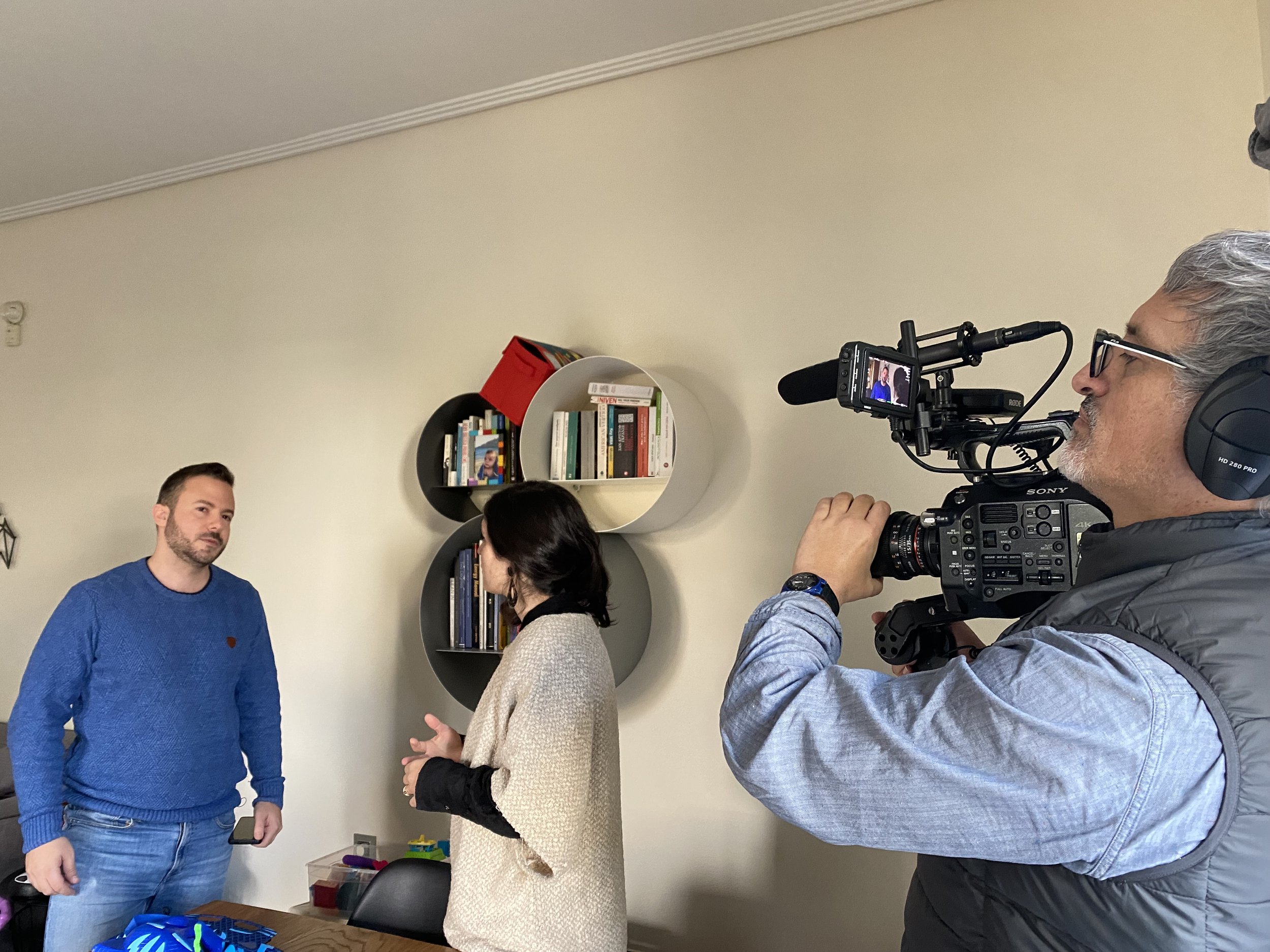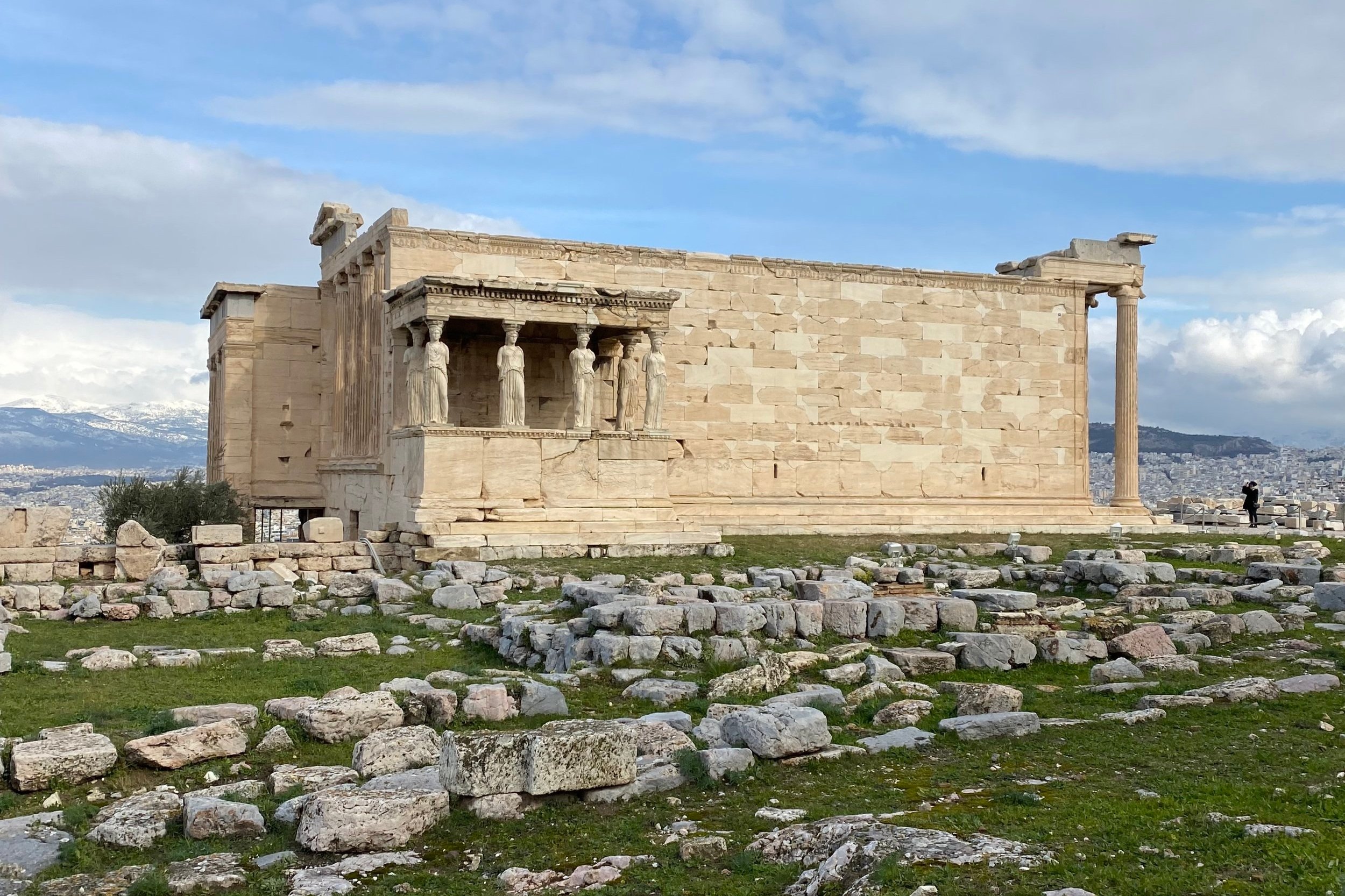TwinERGY Pilot Series: Exploring TwinERGY Athens Pilot
One month ago the Ideas for Change team traveled to Athens to meet the TwinERGY Athens pilot leaders and prepare the Energy Future video that will showcast what’s been going on in the demo-site in terms of technology implementation, citizen participation and engagement. Here you can find a quick chronicle of those days in Greek lands 🙂
To start with, Greece, as many European countries nowadays, is suffering from high energy prices, unsustainable consumption, low penetration of renewable energy sources and, especially in urban areas, high contamination episodes. Having this background in mind, TwinERGY pilot project in Athens is implementing a series of technology tests and coordinated actions to enhance self-consumption, foster the use of renewable energy and all in all, facilitate a more active role from citizens in the market. In particular, the project has provided smart devices such as smart plugs, enhanced the charge of e-mobility vehicles, and is testing the dedicated Twinergy dashboard and application, still under development, to 18 households across Athens. All these aspects must be related to the context of deploying a Human Demand-Response programme as a guidance, which is the main driver of the Athens pilot actions.
Implementation of a Human Demand-Response programme
But, what does the Human Demand-Response programme mean? We visited Protergia’s headquarters, the partner firm that coordinates the Greek pilot, and we had the opportunity to get insights on how a Human Demand-Response framework works from a group of experts in the field. Following his points, this methodology basically enables a more active participation in the energy market by involving them in design methods and decision-making processes. By better understanding the individual and collective capacity to be more flexible in the demand patterns, it results easier to achieve financial and operational benefits. By controlling their consumption, and thus, by taking responsible and more conscious decisions, allow improving capacity and smarter operation of the energy grid.
In the end, these activities allow the project to test the collective capacity to balance energy supply and demand, and to better operate the system. Protergia as an energy retailer has a portfolio of 500,000 customers in the wholesale market (electricity and gas) in Greece, that could be potential beneficiaries of programmes such as the one under test by TwinERGY. And the implementation of such Demand-Response services to all the customer’s portfolio would benefit both consumers (by implementing dynamic pricing schemes, bigger flexibility in their consumption amongst others) as well as the public network (HEDNO).
The Community Digital Twin to empower better retailer decisions
One of the points that distinguishes the Athens pilot with the rest TwinERGY case studies, is the fact that all supplies taking part on the pilot are operated by the same energy retailer, Protergia. This particular situation gives special emphasis to understand and test the collective capacity to operate in a more flexible, sustainable and coordinated manner, and this is a particularly good area to use and test the Community Digital Twin.
All participants of the pilot have installed smart devices in their houses such as smart plugs and smart meters, sensors to control luminous intensity and consumptions, amongst others. The data collected by these sensors pops into the TwinERGY digital twin platform, allowing to better understand and improve not only each household but the aggregated capacity of the 18 houses. The experiment wants then to collect data and to tackle participants' energy habits and consumption as well as complementing the digital twin to have a wider idea of local energy patterns.
Another aspect of the pilot worth mentioning is fostering the use of e-mobility vehicles by providing several chargers that complement the few ones already existing in the city. Local participants can interact with EV and start collecting data on their driving as a way to manage their consumption. This helps to identify the differences between traditional autos and renewable ones, tackling a more sustainable mobility. The pilot has also installed a network of public chargers that can be used across the city of Athens.
Visiting this demo-site was an excellent experience to get to know how TwinERGY is being deployed, to further understand how are participants interacting with the system, which are their feelings with the project and the benefits they envision to get from it. Now it’s time to prepare the Energy Future video and show to all of you the Athens pilot.
Stay tuned!




